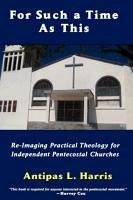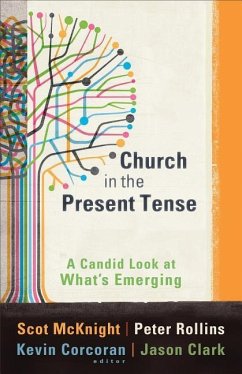
For Such a Time as This
Versandkostenfrei!
Nicht lieferbar
Th series Pentecostal/Charismatic Studies is designed to explore the historical, theological and intercultural dimensions of these twin twentieth-century Restorationists traditions from a global perspective. In this volume Antipas Harris brings these dimensions to bear as he focuses on the pastoral theology of two African American Indepen-dent pentecostal churches. The first, the Rock of Life Church, was initially affiliated with the United Pentecostal Church, the largest "Oneness" Pentecostal denomination in the United States that has been historically white. The second, a Church of God Pilla...
Th series Pentecostal/Charismatic Studies is designed to explore the historical, theological and intercultural dimensions of these twin twentieth-century Restorationists traditions from a global perspective. In this volume Antipas Harris brings these dimensions to bear as he focuses on the pastoral theology of two African American Indepen-dent pentecostal churches. The first, the Rock of Life Church, was initially affiliated with the United Pentecostal Church, the largest "Oneness" Pentecostal denomination in the United States that has been historically white. The second, a Church of God Pillar of Truth Church, was initially associated with the Church of God in Christ, the largest Pentecostal denomination in the United States that is Trinitarian and historically African-American. In each case, he argues, there is a breakdown in the relationship between their interpretation of scripture, experiences of the Spirit, and culture. Instead of this "trilateral" resulting in a liberating power of the gospel, it has led repressive measures, particularly as applied to women. The problem, he maintains, stems from inadequate critical reflection, often made unilaterally by a single male leader that is "imposed" upon a congregation. Using biblical models of decision-making such as illustrated by Jerusalem Council recorded in Acts 15, Harris is confident that these churches possess the recourses necessary that will enable them to shape and reshape church practices that do not compromise core theological beliefs while at the same time remain open to redefining the church's identity and mission in such a way that is truly liberating.




